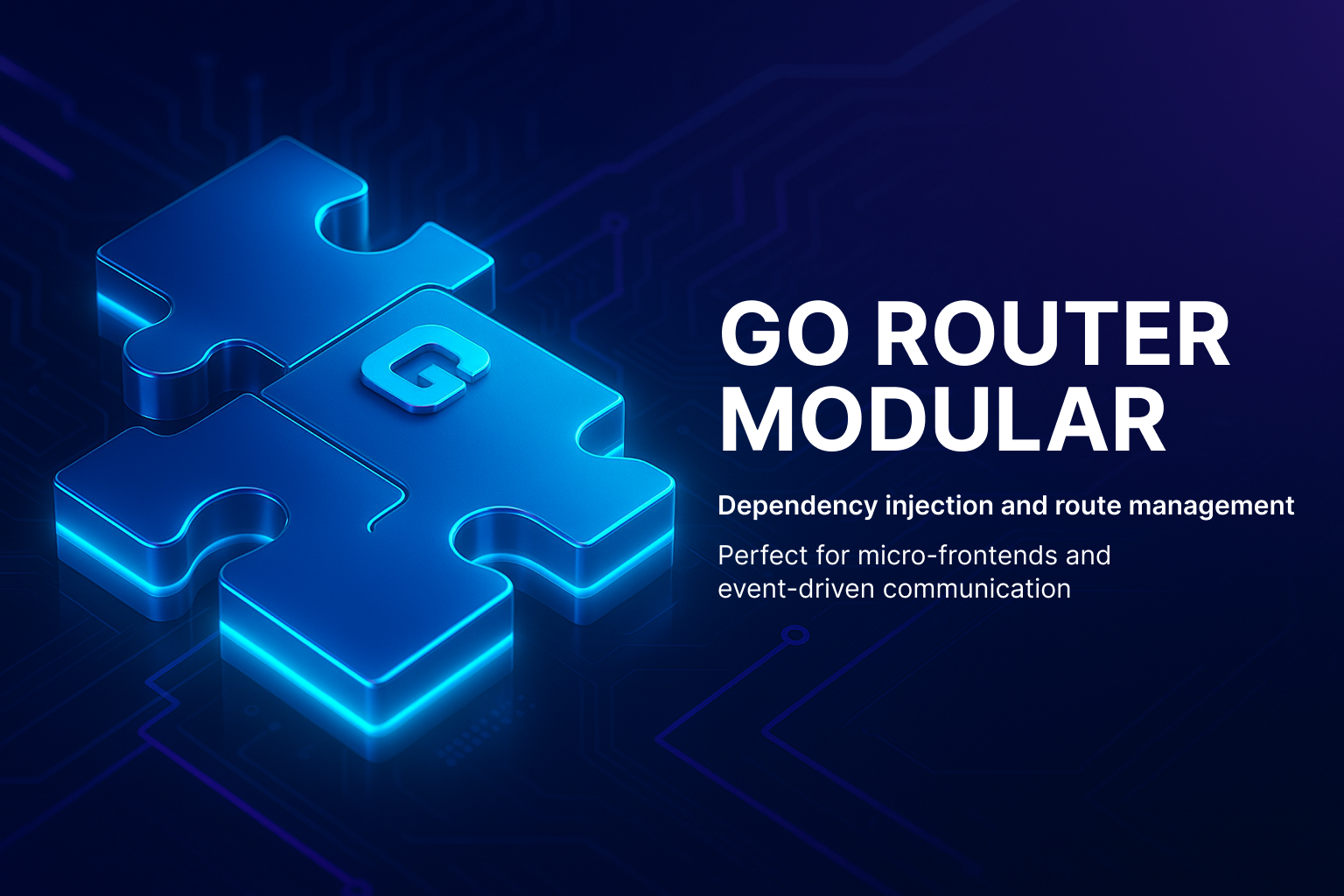
🧩 GoRouter Modular 💉
Dependency injection and route management
Perfect for micro-frontends and event-driven communication
GoRouter Modular brings modular architecture on top of GoRouter with per-module dependency injection and auto-dispose. Perfect for micro frontends and large-scale apps. 🚀
💡 Inspired by flutter_modular
GoRouter Modular is inspired by the modular architecture approach from flutter_modular by Flutterando. We are grateful for their contribution to the Flutter ecosystem.
Complete Documentation
Contents
✨ Key Features
- 🧩 Modular Architecture - Independent, reusable modules
- 💉 Dependency Injection - Built-in DI with auto-dispose
- 🛣️ GoRouter Integration - Type-safe and declarative navigation
- 🎭 Event System - Event-driven communication between modules
- 🚀 Performance - Lazy loading and efficient memory management
- 🛡️ Type Safety - Fully type-safe with compile-time error detection
🔄 Migration Guide (v4 → v5)
Migrate from the old FutureOr<List<Bind<Object>>> binds() list to the new FutureBinds binds(Injector i) function.
What Changed?
Starting with v5.0, GoRouter Modular features a completely redesigned dependency injection system built from the ground up. The bind registration system changed from returning a list to using a function with an injector for better async support and improved type inference. This new implementation provides 4x faster performance and is significantly more robust.
Why the migration?
- ✅ Better async support - Native support for asynchronous bind initialization
- ✅ Improved type inference - Enhanced type safety and better compile-time checks
- ✅ 4x faster performance - Optimized dependency resolution and injection
- ✅ More robust - Better error handling and dependency cycle detection
❌ Old Way (v4.x)
class MyModule extends Module {
@override
FutureOr<List<Bind<Object>>> binds() => [
Bind.factory<ApiService>((i) => ApiService()),
Bind.singleton<DatabaseService>((i) => DatabaseService()),
];
}
✅ New Way (v5.x)
class MyModule extends Module {
@override
FutureBinds binds(Injector i) {
i.add<ApiService>((i) => ApiService());
i.addSingleton<DatabaseService>((i) => DatabaseService());
}
}
Migration Steps
1. Change Method Signature
// Old (v4.x)
@override
FutureOr<List<Bind<Object>>> binds() => [
Bind.singleton<MyService>((i) => MyService()),
];
// New (v5.x) - Using the new injector API
@override
FutureBinds binds(Injector i) {
i.addSingleton<MyService>((i) => MyService());
}
2. Update Registration Syntax
// Old (v4.x)
Bind.singleton<ApiService>((i) => ApiService())
// New (v5.x) - Using the new injector API
i.addSingleton<ApiService>((i) => ApiService())
3. Use Keys When Needed
@override
FutureBinds binds(Injector i) {
i.addSingleton<ApiService>((i) => ApiService(), key: 'main');
i.addSingleton<ApiService>((i) => ApiService(), key: 'backup');
}
Benefits
- ✅ 4x faster performance - Optimized dependency resolution and injection
- ✅ Better async support - Native support for asynchronous bind initialization
- ✅ Improved type inference - Enhanced type safety with better compile-time checks
- ✅ More robust - Better error handling and dependency cycle detection
- ✅ Cleaner syntax - More intuitive API without Bind wrapper overhead
- ✅ Same functionality - All features preserved with better performance
🤝 Contributing
Contributions are very welcome! Open an issue to discuss major changes and submit a PR with clear descriptions of the edits.
- Follow the project conventions and keep docs updated.
- Add small usage examples when introducing new features.
📄 License
This project is distributed under the MIT license. See LICENSE for details.
🎉 Happy Coding with GoRouter Modular! 🎉
Transform your Flutter app into a scalable, modular masterpiece ✨
Made with contrib.rocks


